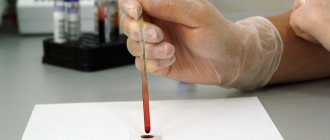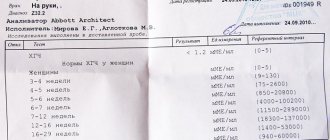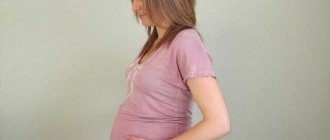A baby’s reflexes are skills without which he simply cannot live fully. These include the sucking reflex. It is thanks to him that the baby develops harmoniously, receiving with mother’s milk all the necessary substances for full development and growth. If a newborn receives the breast on demand, he will begin to feel protected and loved.
Weak sucking reflex
Sometimes in a newborn the sucking reflex is weak or completely absent. To determine this, you need to try to feed the baby. If the baby is healthy, he will immediately take the breast and begin to suck. But sometimes the sucking reflex is weakened. Such children may fall asleep during feeding. They are lethargic and swallow quite rarely. Often the baby may completely refuse the mother's breast. A premature or weak child is discharged only after he learns to suck on his own.
You can also test the sucking reflex by placing your finger in your child's mouth. If the baby is healthy, he will begin to suckle intensively.
The sucking reflex can be weakened for various reasons. Here are the main ones.
- This can occur in severe somatic conditions.
- If there was hypoxia during pregnancy or childbirth.
- A serious cause is paresis of the baby’s facial nerve.
- Sometimes the sucking reflex is absent due to mental retardation.
- The cause could even be a cold or stomatitis.
If a newborn's sucking reflex is weakened, he will not receive enough nutrition. Therefore, milk should be expressed and the baby should be bottle-fed. Feeding frequency: every 2 hours. In such a situation, in no case should you independently determine the diagnosis and try to treat the child on your own. After all, the reason can be very serious. If you notice an abnormal sucking reflex in your newborn baby, consult your doctor immediately. This condition requires careful examination and constant supervision by a specialist.
The baby may have a weak sucking reflex due to the fact that the mother’s nipples have an irregular shape. The baby may also be simply sleepy or cold, and weakly breastfeeding due to a stuffy nose.
Medical help is needed!
If parents notice even the slightest deviation in the condition of their child, they should immediately contact a doctor. Because this may be a signal that a serious pathology is developing, therefore, immediate treatment is necessary. A decrease in the sucking reflex will require monitoring over time, involving a specialist neurologist.
The first symptom of central nervous system damage is the absence of such a reflex. To be more precise, this means that there is damage in the stem part of the medulla oblongata, and this is predicted to be a very unfavorable sign. Such children have very little chance of survival, and they only eat through a feeding tube.
The reasons for the complete absence of sucking in babies include:
- deep prematurity;
- weak chewing muscles, weak orbicularis oris and uvula muscles;
- the medulla oblongata is injured during childbirth.
In any case, consultation with a specialist and subsequent treatment are really necessary. After all, even if the consequences cannot be completely eliminated, they can at least be minimized. And this gives the baby and his parents at least a small, but still hope, which is already important in such a situation.
Instinct for Survival
At what age does the sucking reflex develop in a newborn? The presence of a swallowing and sucking reflex in a baby is due to the formation of nerve endings in the medulla oblongata of the brain in the mother’s womb.
Together, they ensure the process of sucking and swallowing in newborns. After the child is full, the reflexes fade away. After some time they appear clearly again.
The moment of feeding comes. In order to strengthen and develop the sucking reflex in a newborn, immediately after birth it is applied to the mother’s breast. A screaming child, having sucked out a bit of colostrum, immediately calms down.
Over the next year from the moment of birth, it is enough to touch the baby’s mouth, and he begins to move his lips, reproducing sucking movements. When does this reflex go away? After a year, the instinct gradually begins to weaken. By the age of 4 it disappears completely. The mother must breastfeed the baby upon request. If the child is artificial, in the periods between feedings he needs to be given a pacifier so that the instinct is constantly reinforced.
In cases where a newborn does not have enough affection from his mother, he is weaned from the breast too early, the consequences are very undesirable. In subsequent years, as a result of the sucking reflex not being fully satisfied, it manifests itself in a distorted form. Sucking fingers, biting nails, pencils, pens - all these ugly habits come from infancy.
This is also where the craving for cigarettes comes from in adulthood. People who smoke are especially likely to resort to smoking when they are stressed or in the event of other emergency events in their lives. This is explained by the subconscious desire to make sucking movements in order to feel protected.
When the unconditioned sucking reflex arises and decreases
- Paresis of the facial nerves.
- Severe somatic illness of the child.
- High degree of mental retardation.
- Hypoxia during pregnancy or childbirth, causing damage to the central nervous system.
- Weakening of the muscles responsible for chewing, the muscles of the tongue and mouth.
- Deep prematurity.
- Birth injuries of the spinal cord.
The sucking reflex in newborns is a vital reflex that triggers many important processes in the baby’s body, and most importantly, allows him to get food, because in the near future the baby will be able to eat only breast milk or formula from a bottle.
If the course of pregnancy or childbirth was complicated by these factors, the newborn has no sucking reflex at all or is reduced to a minimum, which is fraught with starvation of the baby and its defective development (both physical and mental) in the future. If you fall into a risk group, it is necessary from the first moment the child is born to check the degree of formation of this unconditional reaction of the small organism. There are several ways to do this. Moreover, parents themselves can see the pathology, presenting its obvious symptoms.
Unconditional ones are present in a person from the moment of birth. Examples include the ciliary (when a person touches an eyelash, a person blinks) and tendon (a blow to the tendon causes the muscle to contract) reflexes. Of course, all adults have the same set of unconditioned reactions.
Parents should understand that if a child does not have a sucking reflex, he has serious health problems that need to be addressed immediately with the help of doctors. There are several reasons for this pathology:
- hypoxic or traumatic damage to the central nervous system, which can occur either in the womb or during childbirth (read about fetal hypoxia here);
- disruption of one of the nerves involved in the formation of the sucking reflex, most often paresis or paralysis, in particular the facial nerve;
- birth injury of the medulla oblongata;
- weakness of the tongue, orbicularis oris muscle, masticatory muscles;
- somatic illness in a severe stage;
- mental retardation;
- some diseases of the mouth and pharynx: pronounced stomatitis, rhinitis, respiratory viral infections (ARVI, acute respiratory infections);
- flat shape of the mother’s nipples;
- deep prematurity, when the baby’s weight does not exceed 1.5 kg.
Some signs may indicate the absence of a sucking reflex or its underdevelopment in a baby. Usually they are detected in the maternity hospital, where all measures are taken to save the child. But if for some reason the doctors did not recognize the pathology, the mother herself will be able to see that this reaction of the small organism is underdeveloped. Symptoms of deviation may be as follows.
Complete absence
When attaching a newborn to the mother's breast:
- he doesn't even try to grab the nipple;
- if you put the breast in his mouth, he will not make any attempts to suck it, will not hold it in his mouth;
- this condition lasts more than 12 hours after the birth of the child.
If this is the situation, urgent medical attention is needed. Parents often ask when the sucking reflex appears in premature babies, since in such babies this protective unconditioned reaction develops much later than in healthy ones, develops poorly or is absent altogether.
Even with prematurity, with appropriate medical care, the reflex should appear within 24 hours (this is considered normal). A longer period of time will indicate a serious problem.
After putting your baby to the breast immediately after birth:
- he makes a few weak smacks;
- cannot hold the nipple in his mouth, although he tries to do so;
- does not calm down, but on the contrary, begins to cry even more.
Over the next few days, a poor sucking reflex may include the following:
- the baby does not so much suck the breast (pacifier) as smack loudly;
- constantly releases the nipple from the mouth, cannot hold it;
- feeding can last a long time, but at the same time the breast remains almost full, and the baby remains hungry;
- rarely swallows;
- lethargic;
- falls asleep right at the beginning of feeding;
- he is capricious, cries loudly, sleeps poorly, bends over - all this is due to hunger.
We suggest you read at what temperature to bathe a newborn
If you notice a weak sucking reflex in your newborn, but are not sure whether you are right or wrong, it is better to consult a doctor. He will definitely refute or confirm the diagnosis. You can only put your own finger in the baby’s mouth and observe his reaction. Normally, a healthy baby will immediately grab it and begin to suck intensively.
To develop the sucking reflex in a newborn, inpatient treatment will be required under the mandatory supervision of a doctor. Not only pediatricians, but also neurologists already work here. The recovery course can last different times, depending on the individual characteristics of the small organism and the cause of the pathology. Typically, resuscitation of the unconditioned reflex occurs as follows.
- Treatment of the root cause (trauma, oxygen deprivation, somatics, etc.).
- If within 12 hours the baby’s sucking reflex did not manifest itself and he was not attached to the mother’s breast, parenteral (i.e., passing by the intestinal tract) nutrition is prescribed, usually with a glucose solution.
- Tube feeding is practiced at the birth of premature babies with a clear decrease in the sucking reflex. The amount of food is dosed with a syringe based on the baby’s weight.
- They are allowed to switch to bottle feeding after the reflex is fully restored.
- The issue of breastfeeding is decided in each individual case individually. In this case, the general condition of the newborn and the stability of his reflex signs are taken into account. It is recommended to start with 1 or 2 times a day. However, the child may become very tired of this, and then you have to feed him with a bottle. Typically, such babies are sent for feeding up to 10 times a day. The main thing here is not to rush things.
- Supplementary feeding: since with a poor sucking reflex the baby is constantly malnourished, he is given expressed milk from a spoon or bottle
- A clear feeding schedule: every 2-2.5 hours.
- Dummy.
- Facial massage before meals.
With a competent approach to the problem, the sucking reflex in the newborn is completely restored, which has virtually no effect on its further development. This is possible if resuscitation measures take no more than 1-2 weeks. If they drag on, the reflex may not return to the child at all or this will happen only partially. In this case, there is no need to wait for comforting forecasts.
This is not a habit, but one of the important reflexes. It is formed during the intrauterine development process. And in the future it has an impact on the formation of the psyche in early childhood.
With the help of the sucking reflex, the newborn satisfies its hunger.
It occurs for the first time in life and is one of the innate reflexes that ensures the baby’s survival. This is the very first and most important unconditioned reflex.
During feeding, when the palate touches, the baby begins to suck milk from the mother's breast or from a bottle and sucks it in. The severity of the sucking reflex in newborns is determined by whether the child is hungry or full. After eating, the sucking reflex weakens.
But within an hour it makes itself felt again. Rhythmic sucking calms the baby very well.
Children are born with certain basic skills that help them survive, thrive, and thrive. The sucking reflex in newborns is one of the most important instincts inherent in nature. It is the presence or absence of the sucking reflex that is responsible for the timely and complete development of the newborn.
The lack of sucking skill in children does not allow them to eat. Even if you pour milk into the baby's mouth, he will not be able to swallow it. Such children are fed by tube or intravenously and their lives depend on whether this habit can develop in the future or not.
The formation of the sucking reflex in a newborn occurs in utero. A newborn baby is ready to suck on his mother’s breast or bottle; this process not only saturates him, but also calms him.
By the way, this is why many babies suck their fingers, fists or pacifiers. If a child lacks this natural skill completely, then, unfortunately, it is impossible to develop it.
Exceptions are premature babies, who, due to being born too early, could simply not have developed this habit.
In a healthy newborn, this skill is clearly expressed at birth and remains highly active for up to a year. The extinction of the sucking reflex occurs by 3-4 years.
- Disorders of the central nervous system associated with intrauterine development.
- Mental retardation.
- Somatic disorders that lead to general physical weakness.
- Damage to the nerves of the face and brain.
- What is sucking reflex?
- How to determine if the sucking reflex is normal
- Weak or absent sucking reflex, symptoms and causes
- Breastfeeding - avoiding mistakes
- Early refusal of breastfeeding.
- How many months does the sucking reflex last in a child, why can it be weak or absent?
- Bauer reflex (crawling reflex)
- When the unconditioned sucking reflex arises and decreases
- Sucking reflex: absent, no, threat of cerebral palsy. Swallowing reflex is a disorder.
- Treatment
- In complete absence
- With partial unformation
- Diagnostics
- How long does this phenomenon last?
- Weak sucking reflex
- Coma, edema, cerebral hemorrhage, swallowing, sucking reflex absent, no, Apgar 1 1
- Kussmaul reflex (search)
- Unsatisfied sucking reflex - what does it mean?
- Complications
- What to do if it is absent or weakly expressed
- Difficult labor, resuscitation, tube feeding
- Babkin reflex (hand-mouth reflex)
- Treatment of the consequences of birth injuries, encephalopathy, cerebral palsy in Saratov, Russia
- Breath holding reflex
- Robinson reflex (grasp reflex)
- Sucking reflex in newborns
- How to check the sucking reflex in a child?
- Symptoms of a decreased sucking reflex
- Causes of pathology
- Restoring the reflex
- Swallowing reflex in a newborn
- Babinski reflex
- There is no swallowing or sucking reflex, what to do? How to restore reflexes?
- Causes of impaired sucking reflex
- Landau reflex
- Vomiting reflex
- Perez reflex
- Galant reflex
Basic reflexes of a newborn: table by month
Innate reflexes, also called unconditioned, are extremely important for the survival of a newborn. Thanks to them, the child can take his first breath, find his mother's breast, suck milk, or grab onto his mother if he feels a fall. These are physiological reflexes that should be present in all healthy babies. Many of them fade and completely disappear by 3-4 months of age.
If they remain at an age when they should have been absent for a long time, these will be pathological reflexes. However, there are many unconditioned reflexes that do not disappear. For example, important physiological reflexes that remain in the child even after the neonatal period are represented by gag, corneal, swallowing and other reflexes.
Further, as the toddler grows, new reflexes appear in his life, based on the baby’s experience. They are called conditional, because certain conditions are needed for their development, for example, if a mother breastfeeds a toddler in a certain position, then when she puts the baby in this position, the baby will immediately begin to make sucking movements. Conditioned reflexes that are important for a baby in the first year of life include grasping objects with hands, chewing and walking independently.
Pediatricians divide all innate reflexes into groups depending on their direction. They highlight reflexes that:
- Provide vital functions. A baby will not be able to live without sucking, swallowing and breathing reflexes, as well as without spinal reflexes (the so-called reactions associated with the state of the child’s muscular system).
- Protect the baby from external irritants. Such irritants can be heat, cold, bright light and other factors.
- The baby needs it temporarily. An example of such reflexes is holding your breath when the baby moves through the birth canal, as well as the expulsion reflex, thanks to which the baby is protected from solid food entering the digestive tract until a certain age (so that the child does not choke).
The unconditioned reflexes of the newborn, which are caused by influence on or near the mouth, are called oral. This group of reflexes includes sucking, proboscis, swallowing, searching (also called the Kussmaul reflex), Babkin reflex and others. Reflexes for which the spinal cord is responsible are called spinal. These include the Moro, Galant, Bauer, support, grasping, defensive and other reflexes.
Norm
There is a norm when the sucking reflex appears in a child (at what age) and when it fades away. This is important to know in order to track whether everything is okay with the baby’s development. Any kind of deviation indicates that medical attention and correction are needed.
- Makings of
The beginnings of the sucking reflex are already visible on ultrasound, i.e. in the mother’s womb. On the monitor you can see how the baby holds his finger in his mouth - this is the norm.
- Formation
The sucking reflex is finally formed in the very first minutes of a newborn’s life. If it is healthy and full-term, it is applied immediately to the mother’s breast. Having received a few drops of precious colostrum, the baby calms down. In this simple but very important way, the sucking reflex is activated and the innate instinct is supported.
- Fading
Scientists have found out when a child’s sucking reflex normally fades away, performing a protective function for the body. However, opinions may differ as to what age this reaction of the body persists. Most often they say 1-1.5 years, when it is recommended to wean the baby off the pacifier. Although many advise breastfeeding until 2.5 years, which is also directly related to the sucking reflex. So the age range when a child’s sucking reflex disappears is quite blurred and uncertain.
This is a typical way of forming this unconditional reaction. But sometimes doctors are forced to diagnose (parents can independently notice) that there is no sucking reflex in a newborn: a certain number of problems with his health disrupt either its development during pregnancy, or its activation after the birth of the child.
Wow! There are also cases where overly conscientious mothers continued breastfeeding up to 6-7 years, thereby stretching the age limits for the extinction of the sucking reflex.
What it is
The segments of the brain stem are responsible for the sucking reflex in newborns. The nuclei of nerve pairs located in the medulla oblongata (its stem part) participate in its activation:
- trigeminal;
- vestibular;
- facial;
- wandering;
- glossopharyngeal;
- sublingual.
The interconnection of these nerves strictly coordinates the entire sucking process from beginning to end. After feeding, the reflex weakens, and after 1-1.5 hours it is activated again. The newborn will suck everything that is in his mouth: his mother’s breast, his nipple (if he is artificial), his own fingers. This is not a habit at all, as it begins to form during the period of intrauterine development.
Scientists have found that this unconditional reaction of the body has a great impact on the health of the child’s psyche. Thanks to its possession, the baby can satisfy his hunger, which ensures his survival. Therefore, a poor sucking reflex should be an alarming signal for parents that measures are needed to quickly restore it before it is too late. But how to find out about pathology? Only by comparing it with the norm and checking its symptoms.
This is interesting! The sucking reflex is established already after 15 weeks after conception, i.e. long before the child is born.
How to check the presence of a reflex in a child yourself?
An assessment of the child’s health and the functioning of his nervous system is carried out based on the presence and severity of various conditioned and unconditioned reactions. The absence of some of them may indicate intrauterine developmental disorders or birth injuries. Most of them appear immediately after birth.
| Reflex | Disappearance time, month |
| Sucking | 3-4 |
| Protective | Up to 1.5 |
| Prehensile | 3-6 |
| Supports | 1-2 |
| Stepper | 1-2 |
| Search | 3-4 |
| Proboscis | 2-3 |
| Babkina | 2-3 |
| Bauer | 4 |
| Moro | 4 |
| Babinsky | Up to 2 years |
| Galanta | 3-4 |
| Perez | 3-4 |
Based on the nature of congenital automatisms, the presence of reflexes and their vivacity after birth, the state of the children’s nervous system is assessed. Premature babies lack a significant part of their innate abilities, since the process of brain maturation has not been fully completed. They have the earliest manifesting oral reactions, but do not affect all receptors. Kids have unique potential, so they are able to recover and catch up with their peers in development in a short time.










